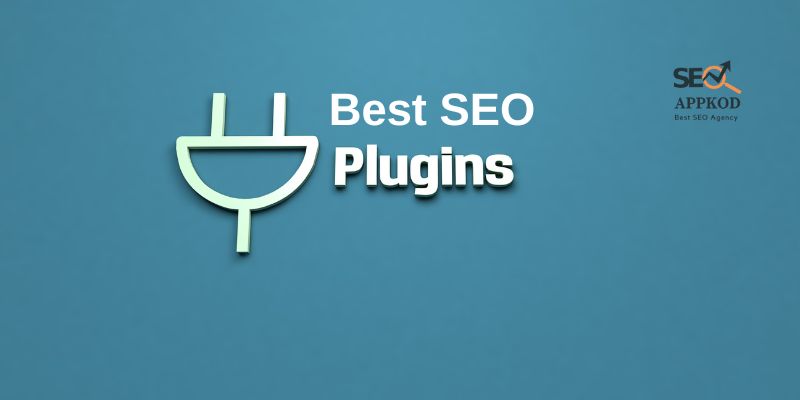
WordPress has made blogging a lot easier for people. Not only it helps you build a Blog site but also offers useful plugins to run it properly.
These plugins are used to analyze and perform different things on your blog site.
Since there are a lot of these plugins out there, picking the right one is a confusing thing to do. So, I am going to discuss 10 must-have WordPress plugins that you can use as a blogger. Let’s get started.
10 Must-Have WordPress Plugins:
The details of these plugins are provided below:
1. Yoast SEO:
Yoast is consider the one of the Best SEO Plugin in the blogging field . One thing that a blogger focuses on more than any other is SEO. That is because it is their main way of ranking their blog and making revenue from it.

The Yoast SEO plugin is helping them with this. This is a very useful tool to maintain its blog’s SEO. These tools help them know whether or not their content is according to the best SEO practices. They also do it for other things related to the website such as adding meta tags properly.
Main features:
- Real-time content analysis
- It can create an XML sitemap
- Performs proper keyword analysis
- Content optimization
- Freemium nature
2. Akismet:
If you are running an informational blog, you might face a lot of spam comments. These comments aren’t good for your blog at all. The Akismet WordPress plugin is designed to help you get rid of them effectively. This plugin is designed to ban and clear spam from your blog’s comment section.

its tool can also help you ban spammy form submissions as well. also has the discarding ability. By doing this, it makes sure your site’s credibility stays intact and you don’t waste your time on spam content.
Main features:
- Automatic spam filtering.
- Protects the site from spam in real time.
- Its settings are customizable.
- The installation and setup methods are easy.
3. WP Rocket:
Another must-have WordPress plugin for a blogger is WP Rocket. That is because it can help you improve the overall user-friendliness to a great extent. It does it by managing your site’s cache. This means whenever a person opens the site, it takes a while to show up. This can annoy the user and they can abandon it.

The plugin has all the features you need to stop this from happening. For example, it can compress your site’s static files and facilitate the lazy loading of images to make the site faster.
Main features:
- It creates static HTML versions of your page for fast loading.
- Includes image lazy loading.
- Compatible with CDNs.
4. MonsterInsights:
Understanding the insights about your traffic can be of great use. That is because doing so can help you build proper content strategies.
That’s what MonsterInsight is all about. This plugin is designed to help you analyze different aspects of your site’s audience.

You can do it in different ways. For example, it can tell you about the region from where most of your audiences are coming from. Besides this, it can also be useful for tracking other factors like bounce rate and page views.
Main features:
- Integrates with Google Analytics.
- Real-time tracking report.
- E-commerce and affiliate link tracking.
5. Smash Balloon:
One of the major aspects that determine a blog’s success is social media integration. It becomes even more important if you’re actively posting on your social accounts. The Smash Balloon can help you showcase the feeds of these accounts on your blog.

This means your audience can stay up-to-date with whatever you’re posting on social media as well. This plugin has the ability to integrate with apps like Instagram, Facebook, YouTube, etc. It makes the user-friendliness of the blog better and makes it attractive-looking as well.
Main features
The feeds can be customized.
- Works with different social media platforms.
- It makes the feed design responsive.
6. Optimole:
Uploading images on your blog is useful as well as aesthetically pleasing. However, it can slow down your site’s loading time.
This time can increase even more if the image quality is high. The Optimole WordPress plugin can help you prevent this from happening. It does it by optimizing the size of all the images you upload on your blog.

It offers different features in order to do that. For example, you can compress images of almost any format with it. Besides this, you also get the feature of bulk compressing. This helps you compress the size of images that you have already posted on your blog site.
Main features:
- Automatic image optimization.
- Images are displayed according to the user’s screen type.
- Offers the lazy loading facility.
7. SchedulePress:
Regularly posting content on your blog is the key to success. But sometimes we don’t have time to make timely posts. In such a situation, using the SchedulePress plugin can be useful. It is designed to help you schedule multiple posts at once.

This plugin will make posts at a certain time on its own. You can create content in bulk and schedule it with this tool. It will take care of the rest of the process. In this way, you don’t have to worry about missing out posting on at regular times.
Main features:
- Sets publishing time for blogs.
- Sets automatic schedule for page deletion.
- Shows posting schedule in the form of a calendar.
8. LoginPress:
Focusing on your site’s login page is an essential thing to ensure user-friendliness. That is what the LoginPress WordPress plugin is used for. It is designed to help you control different aspects of this page.

You can easily customize all the required options on your login page. For example, you can make changes in the login button and footer easily. Not only that. You can add JS and CSS code in order to customize these things further.
Main features:
- It can create multiple login forms.
- setup procedure is very easy.
- It can integrate the CAPTCHA feature.
9. OptinMonster:
Many bloggers also focus on building an email address list of their visitors that can be used for marketing purposes. The OptinMonster WordPress plugin is the right tool for this. It helps you make and deploy different types of opt-in forms where users can input their email addresses.

These forms can be shown in different ways such as popups, slide-ins, etc. You can easily customize them as well. For example, you can add something like “Subscribe to our daily newsletter”.
Main features:
- Customize form design easily
- Shows the form when the user is about to leave the site.
- Creates forms according to a specific audience.
10. Imagify:
Last but not least, Imagify is another must-have plugin tools for bloggers. It is suitable for you if you’re looking for a too that offers easy image compression features. Thes features can help you optimize the image size according to your blog’s requirements.

This plugin is designed to convert images into WebP format by default. Besides this, you can also convert them into Avif format as well. Such conversion can help you optimize the loading speed of your blog site easily. Doing this is a good way of increasing the user-friendliness of your website.
Major features:
- Converts images into optimized formats automatically.
- It’s suitable for bulk image compression.
Conclusion:
To sum it up, WordPress is a great site for bloggers. It offers them a lot of different plugins that can make their blogging experience smooth. I have mentioned some of the very best of these plugins that a blogger must have.
They are designed to help both you and your audience. Their main features are also described in a comprehensive way.
Frequently Asked Questions (FAQs):
Are these plugins easy to setup?
Absolutely. All of these plugins are easy to set up.
Do I need all of them for my WordPress blog?
No. You should pick the one that you really need.
Are these plugins free to use?
These plugins aren’t completely free to use. They might offer some limited features for free, however.



